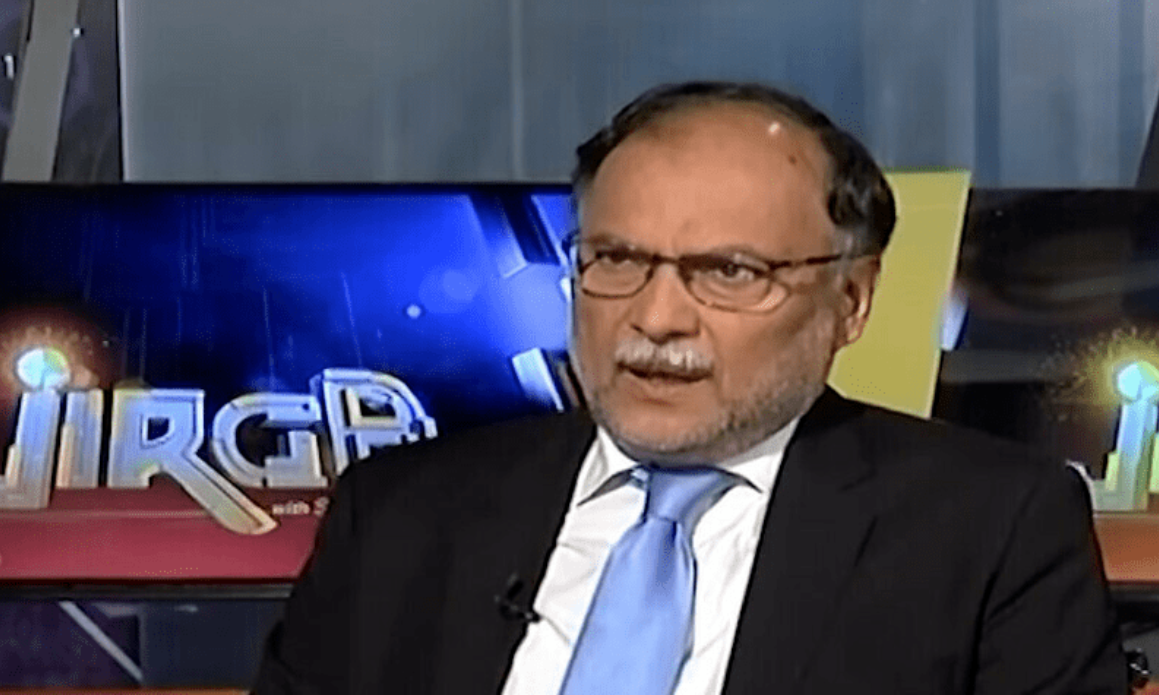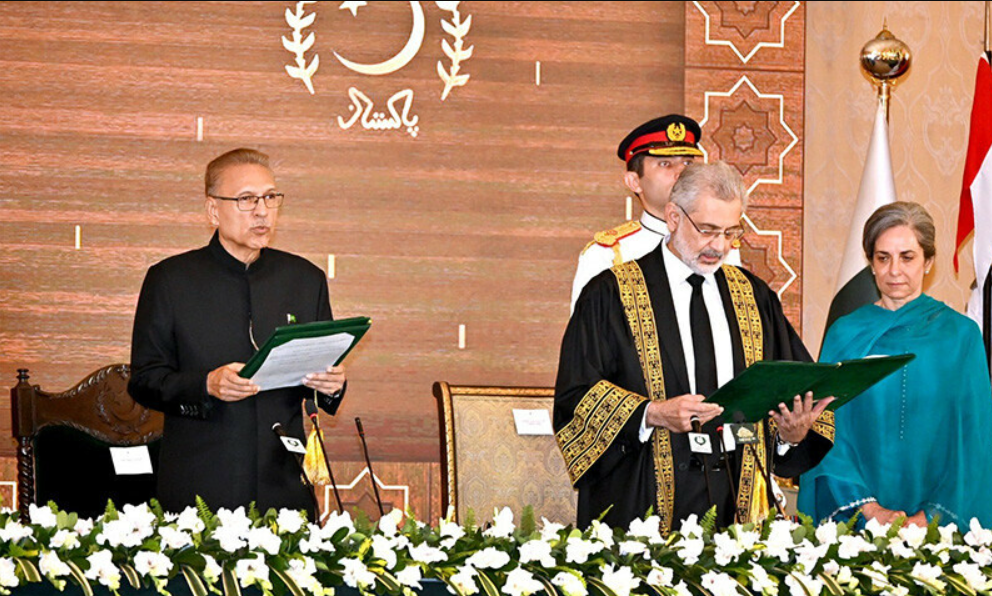Planning Minister Ahsan Iqbal has clarified that his recent statement about China cautioning Pakistan against “conducting any experiment” during the 2018 elections was taken out of context. Iqbal made the statement during an appearance on Geo News‘ program ‘Jirga’, where he discussed the China-Pakistan Economic Corridor (CPEC). He stated that China had conveyed to the establishment of that time that any new experiment would derail the CPEC project and that interference in the elections would not be in Pakistan’s favor.
He added that the advice not to experiment was the privately expressed opinion of some senior businessmen working on CPEC projects, rather than China officially conveying it to the establishment. In a clarification tweet, Iqbal stated that China maintains a policy of non-interference in the domestic affairs of other countries. Meanwhile, ex-foreign minister Shah Mahmood Qureshi termed Iqbal’s statement as “unfortunate and irresponsible” and stated that the insinuation that China would interfere in Pakistan’s domestic affairs was baffling and insulting.
I can provide additional information on the China-Pakistan Economic Corridor (CPEC), which was discussed by Planning Minister Ahsan Iqbal during his appearance on Geo News‘ program ‘Jirga’.
The CPEC is a collection of infrastructure and energy projects that are being developed under China’s Belt and Road Initiative (BRI). The corridor, which is estimated to be worth $62 billion, aims to connect China’s western region of Xinjiang to Pakistan’s Gwadar port in Balochistan province through a network of highways, railways, and pipelines. The project is expected to provide China with a shorter and more cost-effective trade route to the Middle East and Europe, while also providing Pakistan with much-needed infrastructure development.
The CPEC has been touted as a game-changer for Pakistan’s economy, which has been struggling with issues such as a high fiscal deficit, low foreign reserves, and a large trade deficit. The project has the potential to create jobs, boost exports, and attract foreign investment to Pakistan. However, the project has also faced criticism from some quarters, who argue that it could lead to a debt trap for Pakistan, where it becomes heavily indebted to China.
The CPEC has been a subject of political controversy in Pakistan, with the opposition parties accusing the government of mishandling the project and compromising Pakistan’s sovereignty. The opposition parties have also alleged that the CPEC projects are being awarded to Chinese companies without following proper procedures and without adequate transparency.
The PTI government, which came to power in the 2018 elections, has expressed its commitment to the CPEC project and has vowed to complete it on time. However, the government has also sought to renegotiate some of the terms of the project, such as the interest rates on Chinese loans, which it has argued are too high.
China has been a close ally of Pakistan for decades, and the two countries have a strong strategic partnership. China has provided Pakistan with significant economic and military assistance and has been a key supporter of Pakistan on the international stage. Pakistan, in turn, has supported China’s policies on issues such as Taiwan, Tibet, and Xinjiang.
China’s growing influence in Pakistan has raised concerns in some quarters, particularly in India and the United States, who see it as a part of China’s broader strategy to expand its influence in the region and beyond. Some analysts have also raised concerns about the security implications of the CPEC project, particularly in the restive province of Balochistan, where separatist groups have carried out attacks against Chinese workers.
In conclusion, the CPEC project is a significant undertaking that has the potential to transform Pakistan’s economy and bring it closer to China. However, the project also faces significant challenges, including political opposition, security concerns, and allegations of lack of transparency. The controversy surrounding Ahsan Iqbal’s recent statement about China’s advice to Pakistan underscores the sensitivity of the CPEC project and the need for greater transparency and accountability. It remains to be seen how the project will evolve in the coming years and whether it will deliver on its promise of economic development for Pakistan.






Share this: